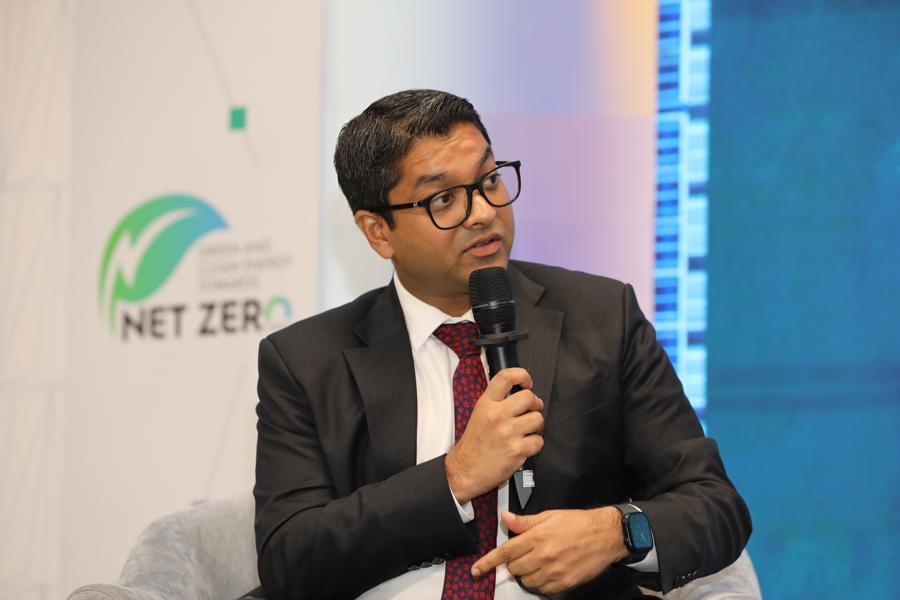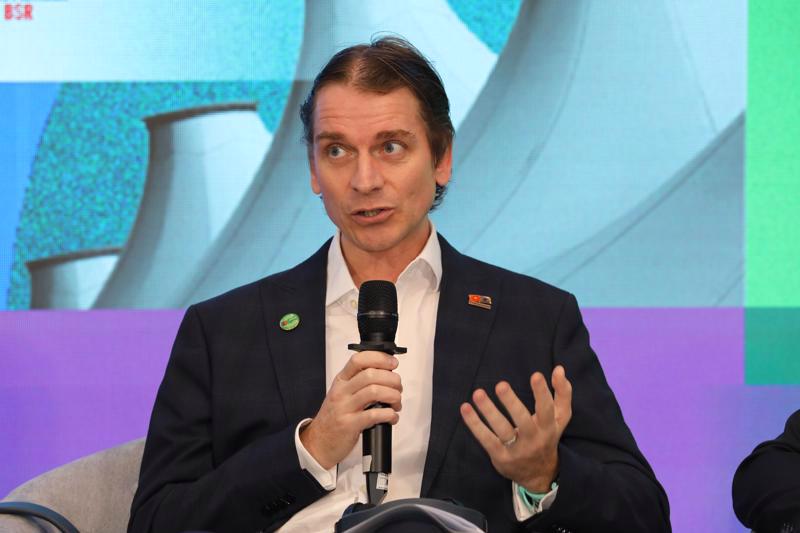Addressing the “Green and Clean Energy Towards Net Zero Forum” with the theme “Prospects for New Energy Development, International Experiences and Effective Strategies for Vietnam”, organized by VnEconomy / Vietnam Economic Times with support from the Department of Climate Change at the Ministry of Natural Resources and Environment, Mr. Stuart Livesey, Member of the Executive Board and Co-Chairman of the Green Growth Sector Committee of the European Chamber of Commerce in Vietnam (EuroCham), said Vietnam has made significant strides forward in energy transition efforts despite still being in the initial stages of the process.
Ensuring investor confidence
According to Mr. Livesey, renewable energy has managed to account for a significant proportion of Vietnam’s power generation mix. Several key regulations to promote its development have also begun to be enacted.
Agreeing, Mr. Abhinav Goyal, Director of Capital Projects and Infrastructure Advisory Services at PwC Vietnam, expressed his admiration for Vietnam’s efforts to increase renewable power capacity in just a short period of time.
“In 2017, we were at 500 MW of renewables, and in 2022 were at 21 GW,” he emphasized. “That kind of a scale up in terms of installed capacity is among some of the highest in the region and around the world.”
He added that the necessary regulations either enacted or about to be enacted, such as the Direct Power Purchase Agreement (DPPA) and the Law on Electricity, will significantly impact Vietnam’s progress in achieving its 2022 Nationally Determined Contribution (NDC) goals.
While appreciating the government’s efforts to promote sustainable energy transition, Mr. Livesey noted that the policies enacted have not yet provided a sense of certainty for the foreign business community.
In other sectors like industry and manufacturing, investors clearly understand the regulations and know the return on investment. However, in Vietnam’s energy sector, there are still “precarious” factors that make FDI enterprises hesitant to invest.
“What Vietnam needs to do now is deliver certainty in the market, to show that this is not a risky environment to be in, and it is worth pouring capital in,” he recommended. “Vietnam needs to have some strong messages come from the government saying we will control this energy landscape for you.”
Vietnam’s renewable energy market has great potential that the country can capitalize on, he continued, as many foreign businesses want to invest here but require that the energy they use comes from renewable sources.
“This is not just because they think it’s ethically what they should do,” he explained. “It’s because it is what their shareholders are telling them to do, and what their board is telling them to do. If they cannot get consistent green energy supplies, they are going to have to look at other markets.”
Maximizing international mechanisms
To drive the development of the domestic renewable energy market, he proposed that Vietnam leverage international financial mechanisms, including the Just Energy Transition Partnership (JETP).

This mechanism allows Vietnam to access $15.5 billion in financial resources over 3-5 years from both public and private funds to address urgent needs, acting as a catalyst for a just energy transition. This money will mainly be allocated as loans, with the remainder being grants.
According to Mr. Livesey, Vietnam should not worry about public debt when receiving funds under the JETP mechanism due to its relatively low public debt ratio compared to other countries and its full ability to manage additional loans.
Furthermore, he pointed out that many countries around the world accept short-term borrowing to achieve significant long-term investments.
“If you can do this carefully and manage this properly then taking on debt in the short term is an extremely good way to manage the transition process for the long term,” he added. While noting that loans should be used for strategic projects, such as upgrading the power grid, increasing energy efficiency, or improving logistics systems at ports, he believes that using these funds for small-scale projects will not bring overall benefits to Vietnam.









 Google translate
Google translate